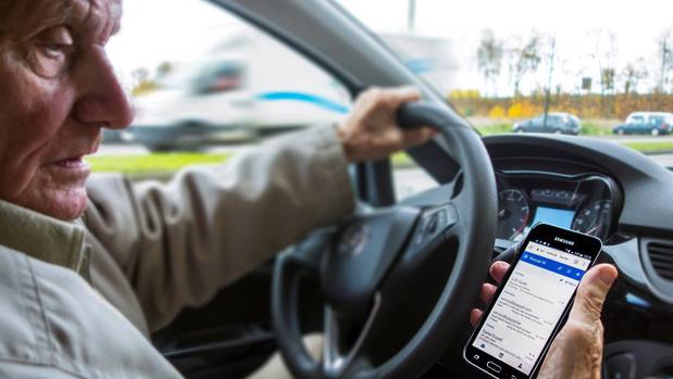
A safety camera trial monitoring how many people drive while using their mobile phones or not wearing seatbelts starts in Auckland today.
Waka Kotahi says no enforcement action will be taken during the trial; motorists will not receive infringement notices, warnings or any other communication from the transport agency as a result of the trial.
The trial - costing $380,000 - will run for six months across two Auckland State Highways and one local road.
All images collected during the trial will be deleted after 48 hours, except for a "small number of anonymised images" kept for reporting purposes, Waka Kotahi said.
The Automobile Association (AA) said it was "very supportive" of the trial.
Simon Douglas, AA's general manager of motoring affairs, said using a phone while driving was a habit people needed to break.
"Phones have become such an important part of our daily lives that we find it difficult to almost function without them.
"It's almost not that phones have become a part of driving, it's that driving is interrupting our continual linkage to the world through our phones and it's a habit we just need to break because when it comes to driving you need to be 100 per cent focused on that task."
Waka Kotahi said they would not be disclosing the locations being used in the trial as motorists may behave differently if they know where the cameras are located.
Waka Kotahi director of land transport Kane Patena said the agency was concerned about making sure people's privacy was protected and had carried out a privacy impact assessment to make sure personal information was not inappropriately used or disclosed.
In a tweet, the agency said it had also worked with the Office of the Privacy Commissioner to "address all privacy matters".
Patena said if the artificial intelligence took a picture of a driver on the road and there was no evidence of distraction then that image was automatically deleted after 15 minutes.
He said the aim of the trial was to understand the scale of the problem of distracted drivers and then determine what the next step should be to tackle it.
"We know that it contributes to a significant proportion of deaths and serious injuries on our road."
In 2020, there were 24 fatal crashes and 111 serious injuries where distraction was identified as a contributing factor, Patena said.
The results of the trial – which the agency said was the first of its kind in New Zealand - would be published in a report after the trial had been completed.
According to Waka Kotahi, on average, one person is killed every day on New Zealand roads while another seven are seriously injured.
The trial is part of Road to Zero, the country's road safety strategy. The vision of the "Road to Zero" strategy is to have no one killed or seriously injured in road crashes in New Zealand.
Take your Radio, Podcasts and Music with you









